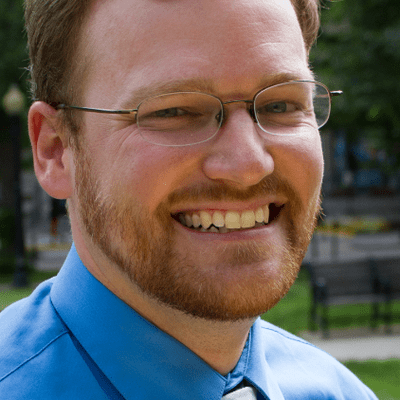Introduction

Well-heeled federal lobbyists are quietly helping embattled Democrats raise serious campaign cash ahead of November’s midterm elections, according to a Center for Public Integrity review of federal records.
During the 15-month period between January 2013 and March 2014, Democratic candidates and groups easily raised more money from lobbyist-bundlers than Republicans did — about $3.7 million versus $2.5 million.
No other political candidate or group received more money from lobbyist-bundlers than the Democratic Senatorial Campaign Committee, which raised nearly $2.6 million from them despite regularly criticizing lobbyists and Republicans who associate with them.
Records indicate that Senate Democrats from Senate Majority Leader Harry Reid, D-Nev., to Sen. Mark Udall, D-Colo., likewise collected bundles of campaign cash from lobbyists doubling as fundraisers.
Reid, in fact, raised a larger percentage of his campaign cash from lobbyist-bundlers than any other member of Congress: 14 percent, or $357,000 of the total $2.6 million he raised. He next faces re-election in 2016.
Udall, for his part, collected about $100,000, which represented about 1.4 percent of his $7.3 million in receipts.
On the GOP side, lobbyists raised about $1.3 million for the National Republican Senatorial Committee. And they raised nearly $1.1 million for Sen. John Cornyn, R-Texas, the Senate Republican whip who many worried would see a competitive primary challenge this year.
Cornyn’s haul from lobbyist-bundlers was a larger sum than any other individual politician collected and accounted for 11 percent of his total receipts.
Bundlers, by definition, are elite political fundraisers credited by campaigns for raising money from relatives, friends or business associates. Lobbyists who bundle campaign contributions above a certain financial threshold are required by law to be identified in candidates’ reports with the Federal Election Commission.
Critics contend that bundlers have undue influence over politicians. Congress addressed lobbyists’ fundraising activities in 2007, requiring them to disclose bundling activity in the wake of the Jack Abramoff corruption scandal.
More recently, as part of his campaign to “change Washington,” President Barack Obama has eschewed money from registered lobbyists, and he banned lobbyists from bundling campaign contributions on his behalf. But many other political leaders in both parties have long benefitted from torrents of campaign cash steered their way by lobbyists.

Lobbyist Tony Podesta of the Podesta Group ranked as the Democratic Party’s top fundraising ally on K Street, records show, bundling about $550,000 combined for Reid and the DSCC.
Podesta, whose brother John Podesta serves as an adviser to Obama, represents a range of corporate clients, including drugmaker Amgen, BP, Google, Wal-Mart and Wells Fargo.
Several Democratic campaigns also disclosed bundling by political action committees affiliated with ideological groups that also lobby.
Hawaii’s Brian Schatz and Oregon’s Jeff Merkley both disclosed bundling activity by the League of Conservation Voters, while Kentucky’s Alison Lundergan Grimes and West Virginia’s Natalie Tennant reported collecting bundled contributions from the Council for a Livable World.
On the Republican side, lobbyist Bill Paxon of Akin Gump Strauss Hauer & Feld — a former member of Congress himself — ranked as the most prolific fundraiser. He raised about $335,000 for the NRSC.
Paxon’s clients include the likes of trade group Pharmaceutical Research and Manufacturers of America, tobacco giant Philip Morris International and the city of Houston.
Some House members, too, reaped riches from lobbyist-bundlers.
For instance, Rep. Mac Thornberry, R-Texas, vice chairman of the House Armed Services Committee, received $40,400 from Larry Duncan, a lobbyist for defense contractor Lockheed Martin.
Rep. Adam Smith, D-Wash., the ranking Democratic member of the House Armed Services Committee collected $18,200 from the PAC of Northrup Grumman, another defense contractor.
And Rep. Tammy Duckworth, D-Ill., an Iraq War veteran and double amputee, reported raising $17,850 from the PAC of the American Orthotic and Prosthetic Association — a trade association that works “for favorable treatment” of the orthotics and prosthetic industry “in laws, regulations and services.”
Overall, K Street giant Brownstein Hyatt Farber Schreck was credited with raising the most political money during the 15-month period: $789,400.
The firm’s PAC bundled $508,500 for the DSCC and another $246,300 for the NRSC. Alfred E. Mottur, the former managing partner of Brownstein Hyatt’s Washington, D.C., office, also bundled $34,600 for the DSCC.
Brownstein Hyatt’s clients include many blue-chip companies such as Comcast, Johnson & Johnson and McDonald’s.
Kathy Kiely, managing editor of the Sunlight Foundation, says bundling is a way for lobbyists to “to ingratiate themselves even more” with politicians.
Tom Susman, a lobbyist for the American Bar Association who is not himself a bundler, added: “The more money you’re responsible for putting into a candidate’s coffer, the more likely that you’ll get an audience.”
The American Bar Association itself has called for lobbyists to refrain from fundraising for politicians whom they lobby.
Read more in Money and Democracy
Money and Democracy
Lobbying activity declines among top special interests
Lackluster Congress, election season drive downturn
Money and Democracy
Hobbled IRS can’t stem ‘dark money’ flow
Mystery political spending to continue unabated through midterm elections


Join the conversation
Show Comments